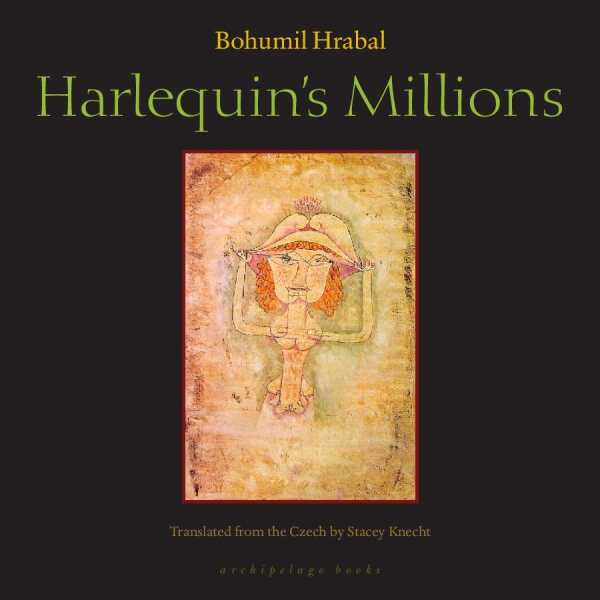Harlequin's Millions
Observations and memories juxtapose tributes to beauty with the gracelessness of aging.
A timeless work from Czech writer Bohumil Hrabal becomes accessible to English-speaking audiences, thanks to a loving translation by Stacey Knecht. In prose both melancholy and musical, Hrabal invites readers into the twilights of nursing home residents perched atop a town that time promised to forget.
The narrator of Harlequin’s Millions, an elderly resident of the castle-cum-retirement-community, works with determination to keep the past alive, allowing the evocative features that surround her to pull her from the macabre back to “the womb of time.” Strolling the grounds, she reflects upon years past. Sensory input is of major assistance, both to the narrator as she remembers and to the reader entering her world: lavender recalls a perfumery in Prague, the slow melt of chocolate on the tongue harkens back to the bitterness of discovering that your beloved has secrets.
But historical ruptures follow the particular, and readers are also made privy to a national socialist switch that threatens the delicate peace of the narrator’s married life. Though she uncovers the happiest moments of her adulthood with reverent hands, certainty is made to seem a privilege and a folly of youth.
Hrabal’s prose replicates the flow of memories, often coming in long sentences that wind toward the point of observation. Such story-telling methods work in neat concert with the serenade evoked in the title, the music of which runs throughout the book. The narrator is able to celebrate key moments in the same breath with which she mourns their ephemerality. The effect is powerful.
Observations at the home itself juxtapose tributes to beauty with the gracelessness of aging. Sandstone sculptures of the female form are contrasted with the brittle boned, prone forms of women packed eight to a room, left staring at piquant frescoed ceilings and waiting for the inevitable. Alert residents are seen waiting with hope for guests who never come. Unimpressive meals become a daily spectacle. In this way, Hrabal poignantly captures the indignity of relegating the elderly to hopeless cycles of waiting, in which their particularity is cruelly erased.
The narrator’s own recollections come to seem less reliable near the end of the book, as observations and inventions become indistinguishable. Who waits with their papers in the stairwell? Whose speeches keep the old days alive? An uprooted cemetery, a merciless wind, a truck blown to bits—all become symbols of the devastating clash of the future with the past. This is a gorgeous, fearful tale about the brutal march of time and a celebration of the audacious vivacity that leads some to cling to love and memory despite it.
Reviewed by
Michelle Anne Schingler
Disclosure: This article is not an endorsement, but a review. The publisher of this book provided free copies of the book to have their book reviewed by a professional reviewer. No fee was paid by the publisher for this review. Foreword Reviews only recommends books that we love. Foreword Magazine, Inc. is disclosing this in accordance with the Federal Trade Commission’s 16 CFR, Part 255.

